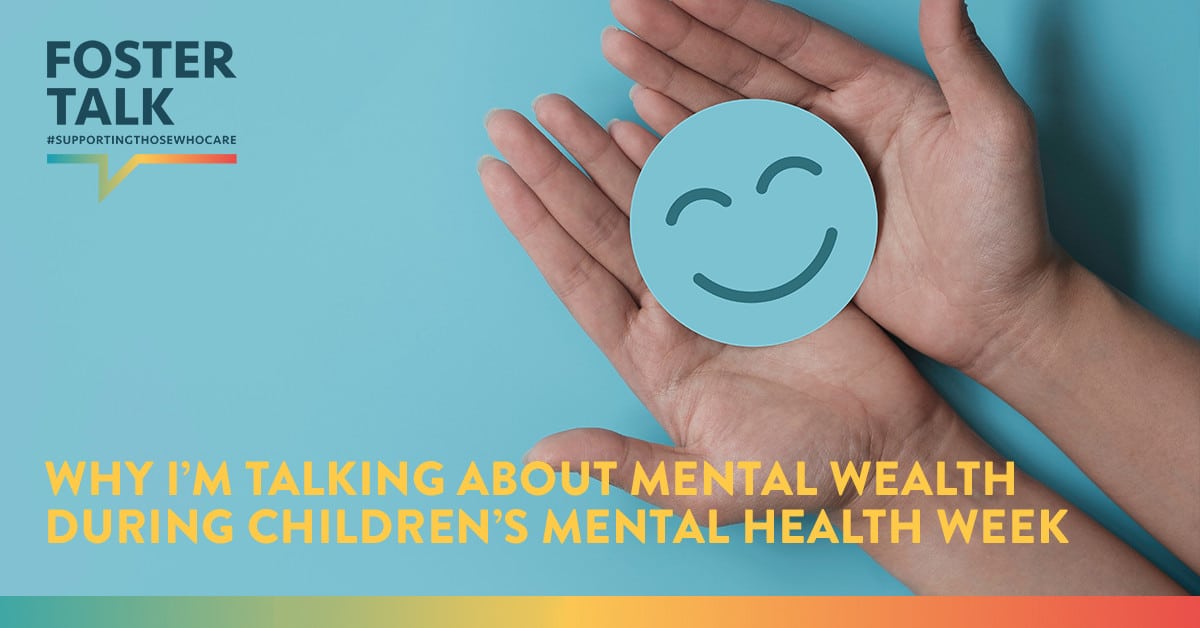The term mental wealth is a combination of mental health and Wellbeing. When we talk about mental health it’s usually in a negative context, people associate mental health with mental health problems – mental health isn’t just a negative thing. Of course, it is absolutely right to use it in this context, however, we all have mental health, and our mental health can be both good and bad, it shouldn’t only be a term we use when talking about mental illness, depression, or suicide.
When your mental health is low, it can result in mental health problems, but when your mental health is positive, it can help you to reach your true potential.
Mental Wealth is about how we can tap into ourselves, recover our true thoughts, feelings and emotions. It means taking a different approach on how we are viewing our life, identifying our own strengths, and having compassion for ourselves and others and ultimately learning how to be the best version of ourselves that we can be.
Ten things Foster Carers can do for their own mental health
1. Value yourself – You’re amazing. Treat yourself with kindness and respect (if you won’t do this for yourself, then who else will do it for you?)
2. Take care of your body – It’s hard to do this when you are taking care of everyone else, but it’s important to get rest, drink water and eat well (You can’t take care of anyone else if you are not taking care of yourself.)
3. Surround yourself with good people – Fostering is one of the hardest jobs in the world it can be emotionally draining on a good day, so make sure you connect with good friends and family often.
4. Give to yourself – Steal a bit of time for yourself, it’s your TV too
5. Learn how to deal with stress – Use your support network, it’s what it’s there for
6. Quiet your mind – Take a few mins a day when everyone’s asleep and the house is calm to have a quiet few minutes
7. Set realistic goals – It’s easy to set unrealistic goals during this pandemic, exercising every day might not be possible and that’s ok, just do what you can
8. Break up the monotony – Shake it up a bit, by having a fancy dress dinner, an impromptu karaoke session or by chilling in your pyjamas all day Sunday
9. Avoid alcohol and other drugs – It’s easy during lockdown to for every night to feel like a Saturday night and settle down with a glass of wine in front of a TV show, but this will take its toll in the long term on your body
10. Get help when you need it – As with number 5, use the people around you and that counts for your fostering provider give them a call, they will support you as much as they can.
FosterTalk are always here for you as well, so call us – 0121 758 5013
This year’s Children’s Mental Health Week is entitled ‘Express yourself’ and it was kicked off by the Duchess of Cambridge in an Instagram post where she highlighted “We need to be the very best versions of ourselves for the children in our care” so following those very wise words we implore you to get creative, get back to doing something you love and boost your mental wealth.
Anne Longfield (the children’s commissioner) has highlighted that mental health services in England do not have the capacity to cope with the impact of the coronavirus pandemic on children, and that clearly extends to us all, and with a few daily changes, we can all look after our mental health more and improve our mental wealth endlessly.
We support over 19,000 households every year as well as many of the largest independent fostering services and local authorities in the UK, if you are a foster carer, a foster carer in pre-approval or special guardian FosterTalk are here to support you.
Links mentioned:
https://www.instagram.com/p/CKtAy5QlF_4/ @kensingtonroyal

